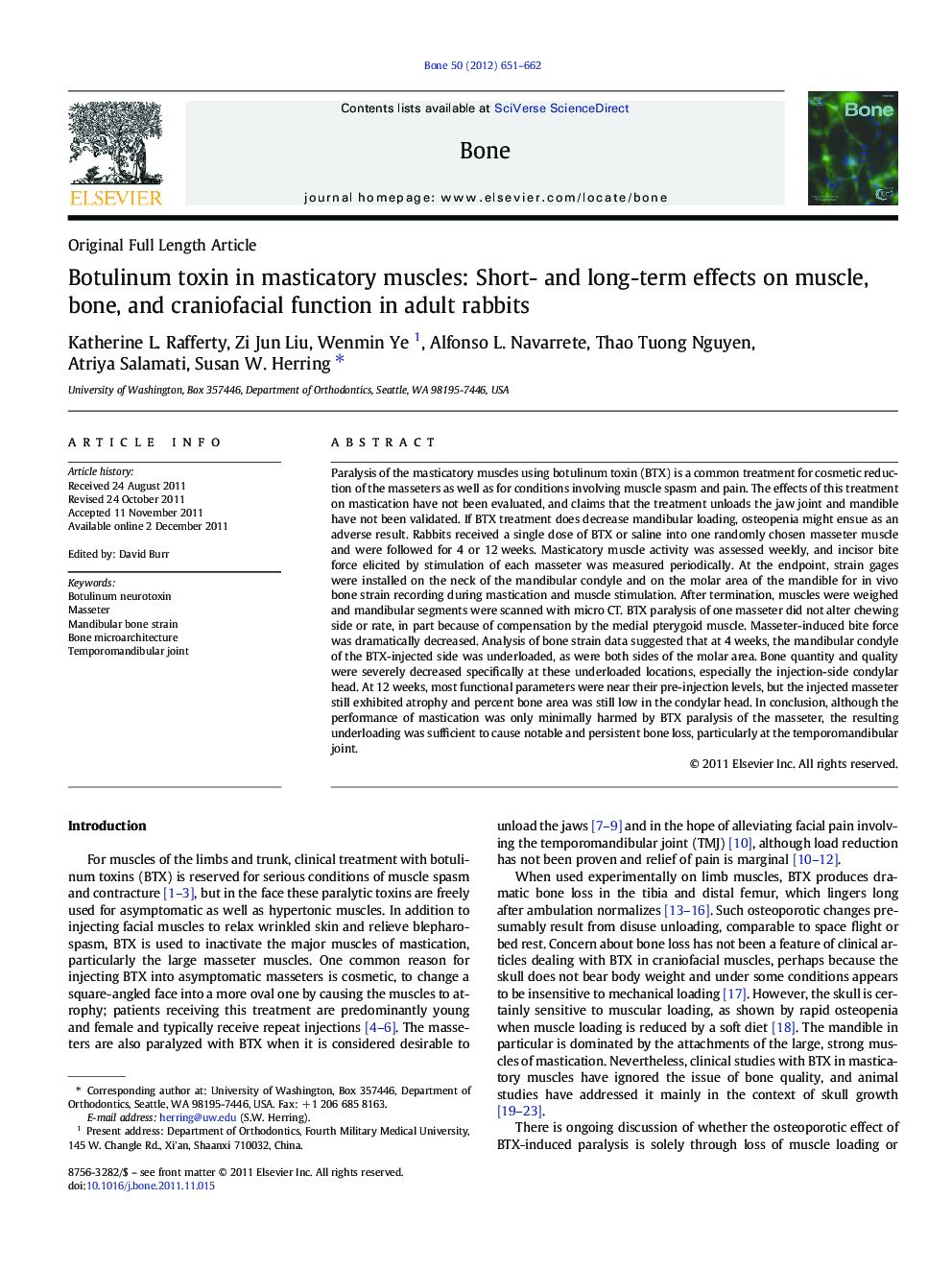| کد مقاله | کد نشریه | سال انتشار | مقاله انگلیسی | نسخه تمام متن |
|---|---|---|---|---|
| 2779654 | 1153279 | 2012 | 12 صفحه PDF | دانلود رایگان |

Paralysis of the masticatory muscles using botulinum toxin (BTX) is a common treatment for cosmetic reduction of the masseters as well as for conditions involving muscle spasm and pain. The effects of this treatment on mastication have not been evaluated, and claims that the treatment unloads the jaw joint and mandible have not been validated. If BTX treatment does decrease mandibular loading, osteopenia might ensue as an adverse result. Rabbits received a single dose of BTX or saline into one randomly chosen masseter muscle and were followed for 4 or 12 weeks. Masticatory muscle activity was assessed weekly, and incisor bite force elicited by stimulation of each masseter was measured periodically. At the endpoint, strain gages were installed on the neck of the mandibular condyle and on the molar area of the mandible for in vivo bone strain recording during mastication and muscle stimulation. After termination, muscles were weighed and mandibular segments were scanned with micro CT. BTX paralysis of one masseter did not alter chewing side or rate, in part because of compensation by the medial pterygoid muscle. Masseter-induced bite force was dramatically decreased. Analysis of bone strain data suggested that at 4 weeks, the mandibular condyle of the BTX-injected side was underloaded, as were both sides of the molar area. Bone quantity and quality were severely decreased specifically at these underloaded locations, especially the injection-side condylar head. At 12 weeks, most functional parameters were near their pre-injection levels, but the injected masseter still exhibited atrophy and percent bone area was still low in the condylar head. In conclusion, although the performance of mastication was only minimally harmed by BTX paralysis of the masseter, the resulting underloading was sufficient to cause notable and persistent bone loss, particularly at the temporomandibular joint.
► An injection of botulinum toxin into the rabbit masseter caused persistent atrophy.
► Despite normal chewing, masseter-induced bite force was greatly reduced.
► In vivo bone strain recording indicated underloading of the mandible.
► Substantial bone loss occurred in the underloaded regions, especially the condyle.
Journal: Bone - Volume 50, Issue 3, March 2012, Pages 651–662